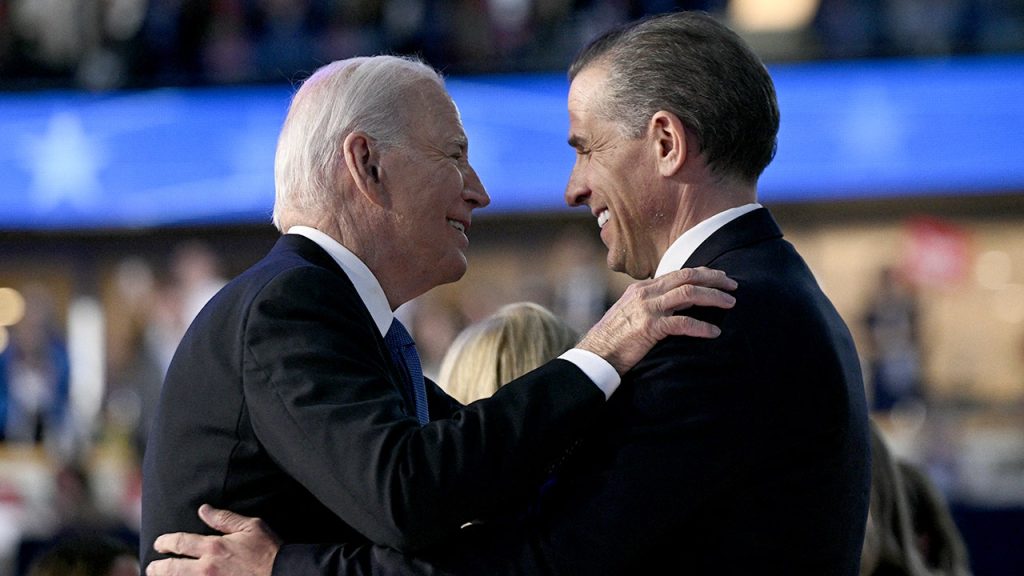President Biden recently has pardoned his son, Hunter Biden, from being sentenced in court cases where he was found guilty of illegally purchasing a gun and failing to pay $1.4 million in taxes. The president claimed these convictions were politically motivated and a miscarriage of justice. Special prosecutor David Weiss, however, stated that there was no evidence of vindictive or selective prosecution in the case. The pardoning of Hunter Biden has faced criticism from IRS whistleblowers who believe that justice was not served and that the President used his power to protect his son.
Hunter Biden’s legal saga dates back to 2018 and involved a gun case where he made false statements during the purchase of a gun and a tax case where he faced multiple felony and misdemeanor tax offenses for failure to pay taxes. Despite initially pleading guilty in the gun case, Hunter Biden decided to enter a guilty plea as jury selection was about to begin in the tax case. The investigations into Hunter Biden’s tax dealings and gun purchase were further aggravated by IRS whistleblowers who claimed that politics played a role in the handling of the case.
The investigation into Hunter Biden’s tax issues began in 2018, and initially focused on his finances. Hunter Biden, however, claimed that he handled his affairs legally and appropriately, expressing confidence in a professional and objective review of the matter. After President Biden took office, David Weiss was appointed as a special prosecutor to oversee the investigation into Hunter Biden. Weiss charged Hunter Biden for the gun offenses and tax-related offenses between 2016 and 2020. The President’s decision to pardon his son now shields him from prosecution for offenses between 2014 and 2024.
The involvement of IRS whistleblowers added to the controversy surrounding Hunter Biden’s legal issues, with claims that the Justice Department and IRS handled the investigation with kid gloves and that the probe was impacted by politics. The House Republicans opened an impeachment inquiry into Biden based on these claims, alleging that he engaged in impeachable conduct and defrauded the United States to enrich his family. However, the impeachment inquiry has lost momentum in recent months as the focus shifted to the presidential election.
In his statement announcing the pardon, President Biden expressed that the prosecution of Hunter was a miscarriage of justice, citing political pressure from his opponents in Congress and a breakdown of a negotiated plea deal. Hunter Biden, in his statement, also argued that the investigations and prosecutions were politically motivated. The decision to pardon Hunter Biden has raised concerns about special privileges for the powerful and the integrity of the justice system. The aftermath of the pardon continues to be a subject of debate and criticism among various parties involved in the case.

